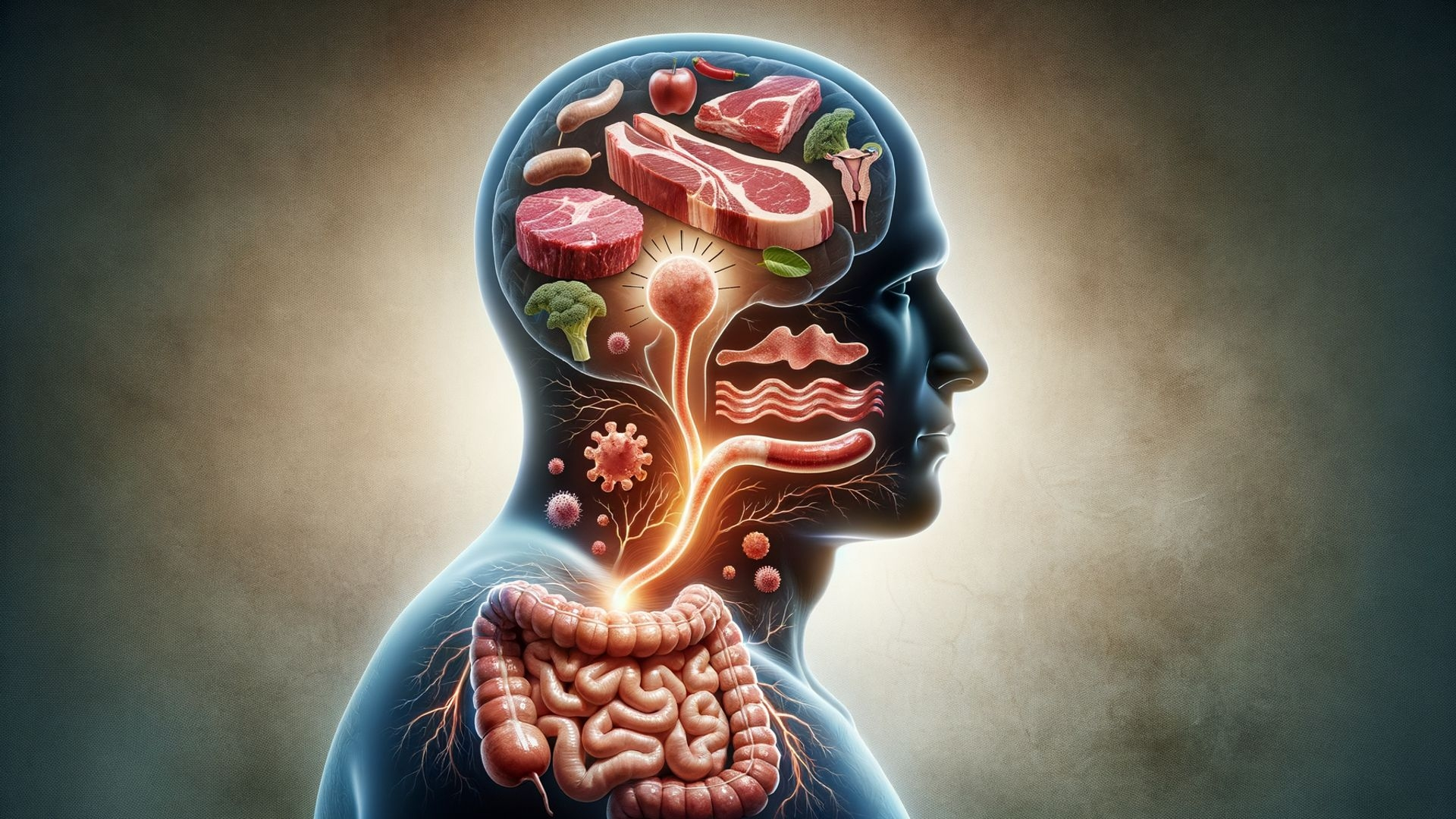Carnivore Diet after Bariatric Surgery: Navigating the Path to Health
Following bariatric surgery, adopting a suitable diet that aids in weight management and promotes overall health is crucial. The carnivore diet, characterized by an emphasis on animal-based foods, has gained popularity in recent years. Understanding how this diet impacts individuals post-surgery and ensuring adequate nutrient intake are essential considerations in navigating the path to health.
What is the Carnivore Diet?
The carnivore diet is a dietary approach that primarily consists of animal products such as meat, poultry, and fish while excluding plant-based foods. Advocates of the carnivore diet believe that consuming only animal foods can lead to various health benefits. By eliminating carbohydrates and focusing on protein and fat intake, individuals following this diet aim to improve their health and achieve weight loss goals.
Understanding the basics of a carnivore diet
The foundation of a carnivore diet lies in the consumption of animal-derived foods such as beef, pork, chicken, and fish. These foods provide essential nutrients including protein and fat, which are vital for the body’s functions and overall well-being.
Benefits of a carnivore diet
Supporters of the carnivore diet claim benefits such as weight loss, reduced inflammation, and improved energy levels. By focusing on high-protein and low-carb food sources, individuals may experience fewer cravings and better control over their dietary choices.
Potential drawbacks of a carnivore diet
However, critics argue that a carnivore diet may lead to nutrient deficiencies due to the exclusion of plant-based foods rich in vitamins, minerals, and fiber. It’s essential for individuals considering this diet to be mindful of potential imbalances and consult with healthcare professionals to ensure a balanced nutritional intake.
How does the Carnivore Diet Impact Weight Loss after Bariatric Surgery?
For individuals who have undergone bariatric surgery, the carnivore diet may present both opportunities and challenges in the weight loss journey. Understanding how this diet can affect weight management post-surgery is crucial for optimizing outcomes.

Effectiveness of the carnivore diet for weight loss post-bariatric surgery
The carnivore diet’s focus on protein and fat while limiting carbohydrate intake aligns with principles that support weight loss. By consuming satiating foods like meat and avoiding high-calorie processed foods, individuals may find it easier to adhere to their weight loss goals following bariatric surgery.
Navigating nutrient intake with a carnivore diet after bariatric surgery
Given the restrictive nature of the carnivore diet, ensuring sufficient protein and essential nutrients is essential for post-bariatric surgery patients. Incorporating a variety of animal-based foods such as beef, poultry, and dairy can help meet the body’s nutritional requirements and promote healing and recovery.
Combining a carnivore diet with bariatric surgery results
While the carnivore diet may offer benefits in terms of weight management, it’s important for individuals to work closely with their healthcare team to monitor progress and make adjustments as needed. Integrating the principles of the carnivore diet with the guidelines provided after bariatric surgery can lead to improved outcomes and overall health.
Transitioning to a Carnivore Diet after Gastric Sleeve Surgery
Individuals who have undergone gastric sleeve surgery often undergo significant dietary modifications to support their weight loss and health goals. Transitioning to a carnivore diet post-surgery requires careful consideration and guidance to ensure a successful adaptation.

Adjusting to a carnivore diet post-gastric sleeve surgery
As the gastric sleeve surgery restricts the size of the stomach, individuals must focus on high-protein foods to meet their nutritional needs. The carnivore diet, known for its protein-rich composition, can align with the dietary requirements of post-gastric sleeve patients.
Possible challenges when transitioning to a carnivore diet
Transitioning to a carnivore diet after gastric sleeve surgery may pose challenges such as managing portion sizes, food tolerances, and meeting micronutrient requirements. It’s essential for individuals to seek support from healthcare professionals and dietitians to address these challenges effectively.
Tips for a successful transition to a carnivore diet after gastric sleeve surgery
To navigate the transition to a carnivore diet successfully, individuals should gradually introduce new foods, monitor their tolerance levels, and prioritize hydration and nutrient intake. Preparing meals in advance and seeking guidance from support groups can also enhance the adaptation process.
Exploring Protein and Nutrient Needs on a Carnivore Diet
Protein and nutrient intake play a significant role in supporting the body’s functions and promoting overall health, especially for individuals following a carnivore diet post-bariatric surgery. Understanding how to meet these requirements is essential for long-term success.

Meeting protein requirements with a carnivore diet post-bariatric surgery
Protein serves as a building block for tissues, muscles, and organs, making it crucial for individuals recovering from bariatric surgery. Incorporating protein sources like beef, poultry, and seafood can help meet post-surgery protein needs and support healing and tissue repair.
Ensuring essential nutrient intake on a carnivore diet
While the carnivore diet focuses on animal-based foods, it’s important to ensure a diverse intake to cover essential nutrients such as vitamins, minerals, and omega-3 fatty acids. Including nutrient-dense options like organ meats, eggs, and dairy can help prevent deficiencies and support overall well-being.
Potential deficiencies and how to address them on a carnivore diet
Individuals following a carnivore diet may be at risk of certain deficiencies, including vitamin C, fiber, and antioxidants typically found in plant-based foods. Monitoring blood levels, considering supplementation, and incorporating liver, eggs, and seafood can help address potential nutrient gaps and optimize health outcomes.
Optimizing Health with a Carnivore Diet
While the carnivore diet may offer benefits in terms of weight management and metabolic health, it’s essential to consider its long-term implications on overall well-being. For individuals post-bariatric surgery, striking a balance between weight loss goals and sustainable health practices is key.
The role of a carnivore diet in improving overall health after bariatric surgery
By promoting weight loss, reducing inflammation, and enhancing metabolic function, the carnivore diet can contribute to improved health outcomes post-bariatric surgery. Its emphasis on whole foods and elimination of processed carbs can support sustainable lifestyle changes and long-term well-being.
Considering long-term sustainability and health implications of a carnivore diet
While the carnivore diet may yield short-term benefits, individuals should assess its long-term sustainability and potential impacts on cardiovascular health, cholesterol levels, and gut microbiome. Regular monitoring, adherence to dietary guidelines, and seeking professional advice can help individuals maintain a balanced approach to nutrition and health.
Consulting with healthcare professionals for guidance on a carnivore diet after bariatric surgery
For individuals navigating the complexities of a carnivore diet after bariatric surgery, consulting with healthcare professionals such as dietitians, nutritionists, and surgeons is essential. Tailoring the diet to individual needs, monitoring progress, and addressing concerns promptly can pave the way for successful weight management and improved health outcomes.
Carnivore Diet After Gastric Bypass Frequently Asked Questions:
What is the Carnivore Diet after Bariatric Surgery?
The Carnivore Diet after Bariatric Surgery involves consuming mainly meat and animal products while avoiding carbohydrates and plant-based foods.
How can the Carnivore Diet benefit individuals who have undergone weight loss surgery?
The high protein and low carb nature of the Carnivore Diet can aid in weight loss, muscle mass retention, and blood sugar control post weight loss surgery such as gastric bypass or gastric sleeve.
Can someone following the Carnivore Diet incorporate dairy products?
Yes, some versions of the Carnivore Diet allow for the inclusion of dairy products like cheese and butter, but it varies among individuals based on their tolerance.
Is the Carnivore Diet a sustainable way to lose weight?
For some individuals, the Carnivore Diet can be an effective way to lose weight due to its focus on high-protein, low-carb, and satiating meat-based meals.
Are there any risks or side effects associated with the Carnivore Diet?
Some people may experience digestive issues like diarrhea or bloating when transitioning to the Carnivore Diet, and it’s important to monitor any potential nutrient deficiencies.
Can the Carnivore Diet help in managing conditions like diabetes?
Some individuals have reported improvements in blood sugar levels and insulin sensitivity by following the Carnivore Diet, but it’s essential to consult with healthcare providers before making dietary changes.
How does the Carnivore Diet differ from other low-carb diets like keto?
The Carnivore Diet focuses solely on animal products, while keto allows for some plant-based foods and a higher fat intake; both can be effective for weight loss depending on individual preferences and needs.






